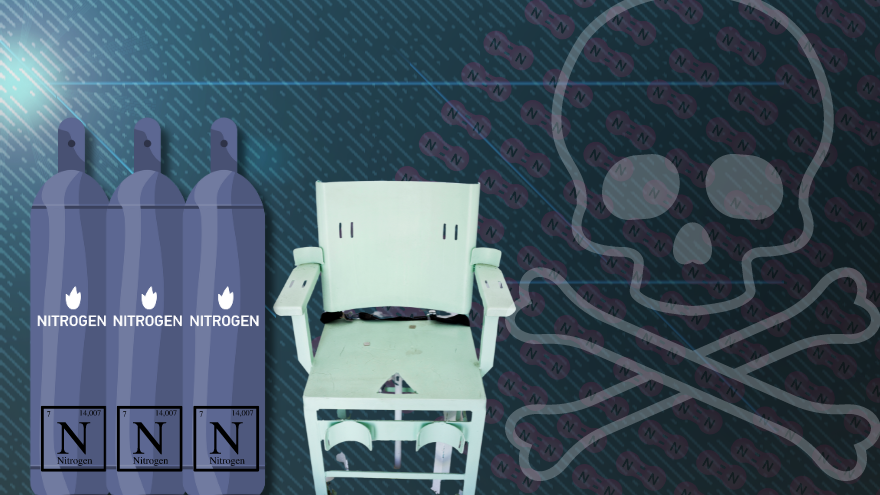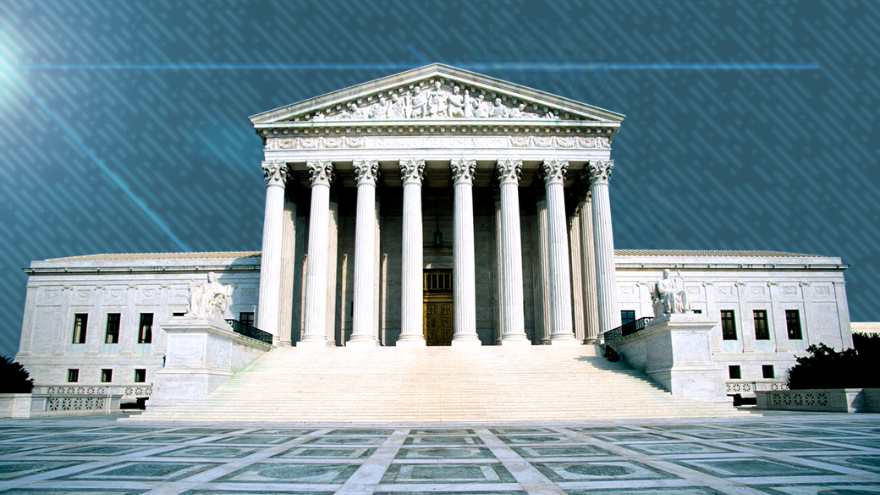A nitrogen-induced execution may be delayed after a spiritual advisor complained about the regulations imposed by the Alabama Department of Correction.
Kenneth Eugene Smith was sentenced to death after being convicted of the 1998 murder of Elizabeth Sennett. He petitioned to be executed via nitrogen hypoxia wherein he will breathe nitrogen gas until his body is deprived of oxygen and he dies. Smith will breathe the gas through a mask placed on his face while he is strapped to a gurney.
This will be the first death by nitrogen gas in the United States. The method is only permitted in Alabama, Oklahoma and Mississippi.
Smith’s spiritual advisor, Reverand Jeff Hood, plans to accompany him into the execution chamber. In his complaint, Hood says he has been required to sign a waiver stating he is aware of the risks and will stay three feet from Smith’s gas mask. The form reportedly warned that in the “highly unlikely event that the hose supplying breathing gas to the mask were to detach, an area of free-flowing nitrogen gas could result, creating a small area of risk (approximately two feet) from the outflow.”
The reverend said the restriction would impede his ability to minister to Smith.
“They’ve asked me to sign a waiver, which to me speaks to the fact that they’re already concerned that things could go wrong,” Hood told AP News in an interview.
Hood’s attorneys have argued that requiring him to stay three feet away from Smith will “deny a prisoner his chosen spiritual advisor’s touch at the most critical juncture of his life: his death.” Hood anointed Casey McWhorter, who was executed in Alabama in November, while he was strapped to the gurney and plans to do the same for Smith.
In March of 2022, the Supreme Court ruled that spiritual advisors could touch inmates during their execution following an appeal from John Henry Ramirez.
Texas had permitted spiritual advisors to stay with inmates until they were taken to the execution chamber but would not allow them to have physical contact during the procedure so staff could "detect signs of distress,” but the nation’s highest court found that “the state’s categorial ban was too restrictive,” per The Washington Post.
Alabama Attorney General Steve Marshall asked the Supreme Court to set an execution date in August. Smith’s execution is currently scheduled for Jan. 25.
Smith was scheduled to die by lethal injection on Nov. 17, 2022, but the execution was ultimately delayed after the two intravenous lines required could not be successfully connected to him. The failed execution prompted Alabama Governor Kay Ivey to instate a three-month execution moratorium.
Smith is one of two men Reverend Charles Sennett hired to kill his wife, Elizabeth. He and the other man, John Forrest Parker, were each given $1,000. Mrs. Sennett was found on March 18, 1988, stabbed and beaten with a fireplace implement in her home. Her husband, who was reportedly in debt and hoping to collect the life insurance money, killed himself before he could be put on trial.
Parker was executed in 2010.

